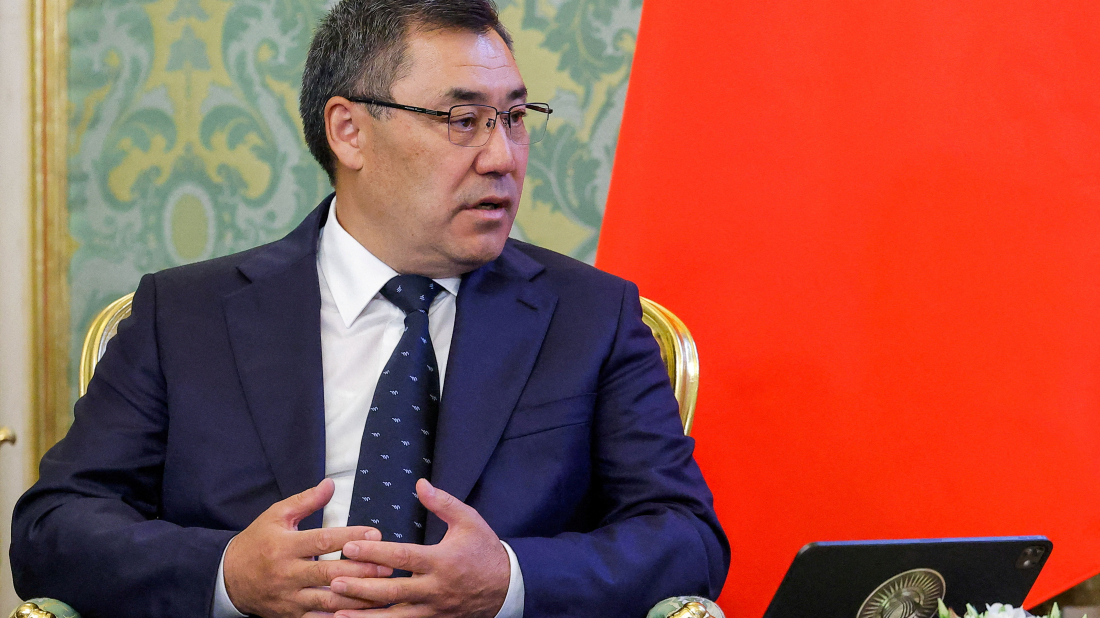Germany's ruling party backs social media curbs for children
Germany's ruling conservatives on Saturday (21 February) passed a motion to ban social media use for under 14s and introduce more stringent digital ve...

The presidential administration in Kyrgyzstan has initiated a public discussion on a draft law proposing amendments to the Constitution that would reintroduce the death penalty.
The document proposes allowing capital punishment for the crimes of child rape and murder accompanied by rape.
Specifically, the first part of Article 25 of the Constitution is to be revised: while it maintains the fundamental right to life, an exception would be introduced permitting the death penalty in these particularly serious cases
The initiative also includes repealing the 2010 law by which Kyrgyzstan acceded to the Second Optional Protocol to the International Covenant on Civil and Political Rights, which aims to abolish the death penalty.
If the amendments are adopted, the Ministry of Foreign Affairs would be required to notify the United Nations of the country’s withdrawal from the relevant international obligations.
Corresponding changes would also be made to the Criminal Code, the Criminal Procedure Code and the Penal Enforcement Code.
The authors of the draft law justify the return of capital punishment by citing a rise in crimes against women and children.
According to data from the General Prosecutor’s Office, 43 murders of women and children were recorded in 2024, and 28 such cases had already been registered in the first eight months of 2025.
In 2024, there were 107 recorded rape cases, 88 of which involved minors. However, the document notes that official statistics do not reflect the full picture, as many crimes go unreported due to victims’ fear of public exposure.
The accompanying explanatory note stresses the need to draw a "clear line", beyond which any violent act against children or women must be met with the harshest punishment.
The authors argue that reintroducing the death penalty would not contradict international standards, since the International Covenant on Civil and Political Rights permits its application for "the most serious crimes", provided that legal safeguards are observed and the punishment is applied in exceptional circumstances.
Public discussion of the draft law is taking place on the portal koomtalkuu.gov.kg, and the initiative has sparked significant public reaction.
It was prompted by the murder of 17-year-old Aisuluu M., which triggered widespread outrage.
Opinions among experts and social media users are divided: some support tougher penalties, while others question the effectiveness of the death penalty and raise concerns about potential human rights violations.
President Sadyr Japarov has stated that the issue should be decided solely through a national referendum.
Human rights advocates, meanwhile, point out that the death penalty does not guarantee protection from violent offenders.
They highlight systemic weaknesses in mechanisms designed to protect women and children and recommend the development of a national programme focused on preventing violence, training law enforcement personnel, and providing comprehensive support for victims.
In summary, the draft law on reintroducing the death penalty in Kyrgyzstan has become the subject of serious public and expert debate, revealing a complex tension between the need to protect citizens and the country’s international human rights commitments.
After the public discussion concludes, the document will be submitted to the Jogorku Kenesh (parliament) and, if approved, put to a nationwide referendum.
Quentin Griffiths, co-founder of online fashion retailer ASOS, has died in Pattaya, Thailand, after falling from the 17th floor of a condominium on 9 February, Thai police confirmed.
At least four people have died and 17 others were injured after a liquid gas truck overturned and exploded in Santiago, Chile’s capital, authorities confirmed on Thursday. Police said the driver was among those killed.
Cubans are increasingly turning to solar power to keep businesses operating and basic household appliances running during prolonged electricity cuts, as fuel shortages make diesel generators and other temporary solutions more difficult and costly to maintain.
Ukraine’s National Paralympic Committee has announced it will boycott the opening ceremony of the Milano Cortina 2026 Paralympics in Verona on 6 March, citing the International Paralympic Committee’s decision to allow some Russian and Belarusian athletes to compete under their national flags.
Gianni Infantino, president of the Fédération Internationale de Football Association (FIFA), announced a new partnership with the Board of Peace on Thursday (19 February), committing to build football pitches and arenas in Gaza as part of broader efforts to rebuild the region.
At least 10 people were killed and 50 wounded in Israeli strikes in Lebanon's Bekaa Valley on Friday (20 February), two security sources told Reuters, after the Israeli military said it had targeted Hezbollah sites in the Baalbek area.
Iran’s Foreign Minister Abbas Araghchi on Saturday (21 February) dismissed U.S. claims that 32,000 civilians were killed during protests in Iran. He said Tehran has already released official figures and called for evidence to support any higher estimates.
Uzbekistan's president Shavkat Mirziyoyev has held a series of high-level meetings in the U.S. aimed at strengthening bilateral economic and strategic ties between the two countries.
Türkiye has signalled readiness to contribute to a proposed Gaza stabilisation force during the inaugural Board of Peace meeting on Thursday (19 February), but according to former Turkish diplomat Mehmet Öğütçü, the decisive factor will be whether Israel and the United States agree on Ankara’s role.
Türkiye is prepared to contribute troops to a proposed international stabilisation force for Gaza, Turkish Foreign Minister Hakan Fidan said on Thursday.
You can download the AnewZ application from Play Store and the App Store.

What is your opinion on this topic?
Leave the first comment